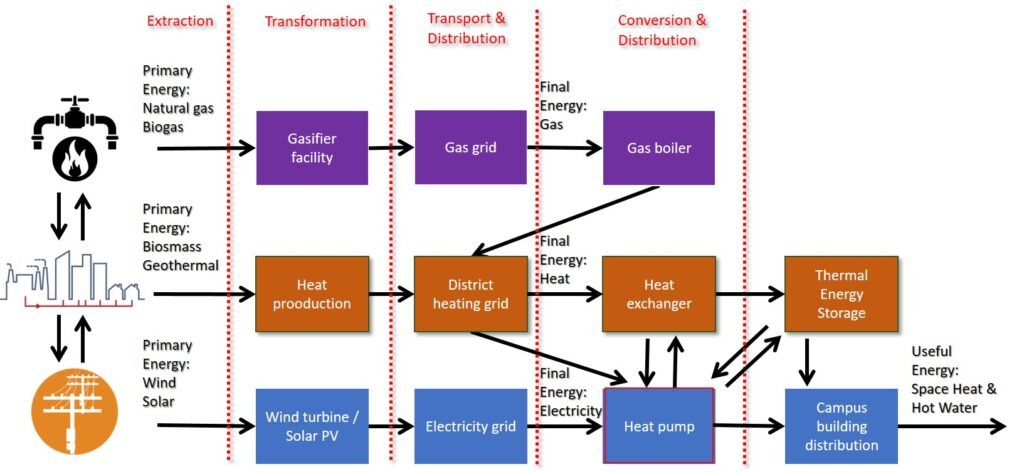Sustainable District Energy for Future Smart Grid

2022
Context
The global reliance on fossil fuels for energy, especially in heating, ventilation, and air conditioning (HVAC) systems, leads to significant energy losses and environmental impacts. Traditional HVAC systems consume a substantial portion of annual electricity use in residential and commercial sectors, contributing to greenhouse gas emissions and climate change. There is a pressing need to transition toward low-carbon heating solutions that improve energy efficiency and reduce reliance on non-renewable resources. This research focuses on developing a sustainable district energy system that integrates renewable energy sources, geothermal heat pumps, and underground thermal energy storage into intelligent thermal grids. By leveraging these technologies, we aim to create a more resilient and adaptable energy infrastructure that addresses current environmental challenges.
Content
We propose a sustainable district energy system that efficiently meets heating and cooling demands by integrating geothermal heat pumps, renewable energy sources, underground thermal energy storage, and smart thermal grids. Geothermal heat pumps utilize stable underground temperatures for efficient heating and cooling, reducing fossil fuel dependence. Renewable energy sources like solar and wind power the system, minimizing greenhouse gas emissions. Thermal energy storage balances supply and demand, enhancing system efficiency, while smart grids intelligently distribute thermal energy to optimize resource use and reduce losses. Our research involves assessing renewable energy potentials, modeling system feasibility, conducting techno-economic analyses, and evaluating geological considerations to implement this integrated solution.
Conclusion
This research presents an innovative approach to sustainable energy management by integrating renewable energy, geothermal heat pumps, and underground thermal energy storage into intelligent thermal grids. The proposed district energy system offers a viable solution to reduce fossil fuel dependence and mitigate environmental impacts associated with traditional HVAC systems. By enhancing energy efficiency and promoting the interaction between thermal and electricity sectors through smart grids, we pave the way for a more sustainable and resilient energy future. This approach not only addresses immediate environmental concerns but also contributes to long-term goals of carbon neutrality and energy independence, serving as a model for sustainable development in the energy sector.